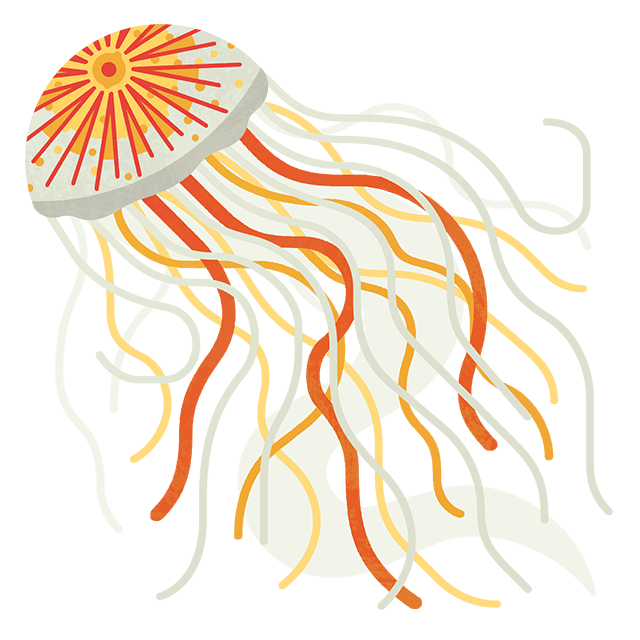
Citizen Science Month: What is citizen science?
5 minute read
To mark Citizen Science Month, we take a look at what 'citizen science' is, why it's so important, and how can you get involved.
What is citizen science?
Citizen science, sometimes also known as community science, is when members of the public work together with scientists to conduct scientific research. It’s a really useful science as more data can be collected over a larger area and it can help to inspire behaviour change in communities. It’s also fun to do!
Citizen science programmes have a genuine scientific outcome, like developing scientific knowledge, answering a specific question or collecting evidence to influence policies, so taking part can create real change to better protect our ocean.

Credit: Aled Llywelyn
Why take part in citizen science?

Credit: Kate Whitton
What happens to the accumulated data?
Science is essential to expand our knowledge of the natural world and, for that, we need data. When you take part in a citizen science programme, you collect data – like how many litter items were on a particular beach, the species and location of a jellyfish, or the type of seaweed in a certain area.
When submitted, this data is analysed by organisations like us alongside scientists to see what it can tell us about a particular issue, topic, or species – whatever the aim of the research is. This can be used as evidence in research studies which are then published in scientific journals and reports.
At the Marine Conservation Society, as well as writing papers with researchers, we also use data collected by citizen science projects as evidence in our policy work. Because it acts as evidence, data can be a really powerful way to highlight and explain marine issues to policy makers.

Credit: Matt Barnes
How can I get involved in citizen science at the Marine Conservation Society?
There are lots of ways to get involved with our citizen science projects – we have six currently running and we’re always thinking of new projects to inspire our supporters. They cover a range of topics, are open to everyone and can be done anywhere in the UK, so no matter who you are or where you live, you can take part and make a difference!
(5 mins) Wildlife sightings – Tell us if you spot any jellyfish or marine turtles around the UK or Irish coast. We’re working with University of Exeter and University of Plymouth to use these sightings to investigate the health of our ocean. Read our latest report here.
(10 minutes-1 hour) Source to Sea litter quest – Record the litter you find in your local park, street or school ground. You can take part anywhere in the UK, even if you don’t live by the sea! We're tracking how litter travels to the ocean and using this as evidence for deposit return scheme policies.
(30 mins) Big Microplastic Survey (in partnership with Just One Ocean and University of Portsmouth) – Look out for microplastics - the smallest plastics which cause a lot of trouble in our ocean. The project scientists are interested in tracking where and which different types are found on our beaches.
(1 hour) Beach clean – Record litter that you find on a 100-metre stretch of any beach around the UK. This data helps track ocean pollution trends and informs policy changes to better protect UK seas. We also work with other European countries that do the same thing to track this on an even larger scale.
(1 hour) Big Seaweed Search (in partnership with the Natural History Museum) - Record which seaweeds you find on your trip to the beach. Our project seaweed scientist is really interested in how 14 different species of seaweed are moving around the UK in response to climate change.
(2-3 hours) Seasearch - Do you dive or snorkel in the UK or Irish seas? Tell us what marine life you spot on your underwater adventure. This data is vital to track the health of our marine environments.

Credit: Phil Wilkinson
Do I need to undergo training to do citizen science?
Some basic understanding of the project is important, but training isn’t always needed. We provide all the resources you need to get involved.
Will doing citizen science projects have any impact?
Yes! Citizen science is a great way to expand our scientific knowledge and find solutions to marine threats. Doing this as a community develops skills and inspires others to change their behaviours, acting together to protect our ocean.
Seasearch data was used to propose and evidence the need for a Marine Conservation Zone in Northern Ireland and following the assessment process, this area was formally designated, now protecting a range of nationally important marine habitats and species.
When our supporters head to the beach and record litter data during beach cleans, we can identify trends in what’s found the most and where. For years, we’ve collected data on how many plastic bags were on beaches and we used this as evidence to ask the UK governments to introduce carrier bag charges. Since their introduction, we’ve continued to identify trends and have seen a 80% drop in the number of plastic bags found on beaches. A few scientists alone couldn’t gather enough data to make this case, so the work of our supporters donating their time really does make a difference.



